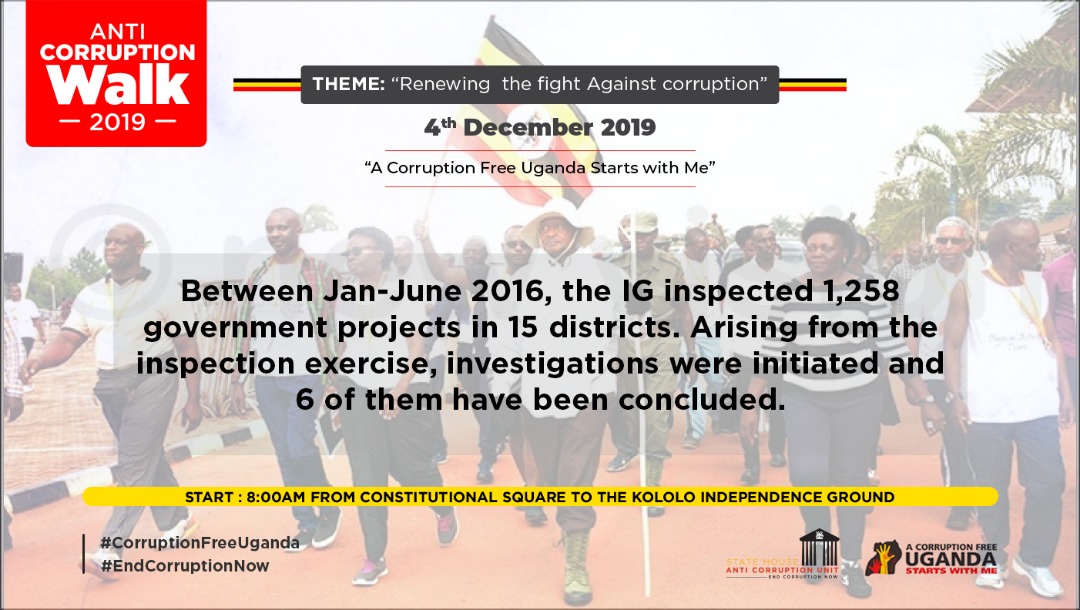It is that season of the year of multiple reality tests – poverty, friendship, and family. Once I followed a family after a shopping spree with three shopping carts full to the brim! Another fellow in the line was just looking.
The till fee was in excess of Ugx. 1,300,000. The lady shopper did not even bother to claim the royalty units on offer by the supermarket. When one cannot even afford a kilo of meat at Ugx. 1,200, witnessing this in action makes one suddenly realize how they have terribly failed the poverty test.
In this season of giving, it is easy to be forgotten by friends. Giving these days seems to be sort of ‘strategic’. People give folks they think have the wherewithal to return the favor.
When the season passes without having received any gift, you have probably failed the friendship test. The family test is a tough one. We are always having a paper to attempt!
Tests are a fact of life. If you went to a functioning secondary school, you did a common Chemistry test using a litmus paper–to determine whether a solution was acidic or a basic.
When it comes to life tests, the litmus paper is one’s integrity and behavior. The ‘solution’ is the challenges that confront you daily. The impact is your actions to address the challenges in the community in terms of stakeholder value delivered.
The planned Presidential anti-corruption walk is a litmus test of sorts on the success of the government’s anti-corruption fight. The three stages in the anti-corruption fight are awareness, legislation and strong action against the offenders. As corruption evolves, the strategies at each stage must evolve.
In the 1990s, awareness was about the ills of corruption, its different faces, costs and government’s corruption management strategy – the people as the champions in the anti-corruption agenda starting at the family level. In 2019, one wonders the appropriateness of the theme: “a corruption-free Uganda; it starts with me.” It has always been about me.
The problem of the “me” talk is that people entrusted with managing public resources never want it to start with them. It is even more painful when the leaders with the power to act keep asking the common man: “what have ‘you’ done.” The corruption fight will never end until “me” and “you” roles are defined and people held to account.
Corruption is a never-ending fight with a definite result – a win or loss. That is why it is called cancer. Either you defeat cancer, or it defeats you. Unfortunately, in Uganda, corruption cancer is taking the day. Once at Lugogo, I entered into an ATM as a young man exited having left a bank balance paper not pulled out of the ATM. Like any peeping Tom, I did look and the balance I saw still puzzles me – Ugx. 16.2billion! I could not believe my eyes. I had to use a pen to write dashes in the zeroes to be sure. I was correct. The young man in his early 20’s was a billionaire. May be is a beneficiary of a rich Dad or he is into innovation and apps like Uber. Whatever his businesses, Ugandans need stories like that of a young man just at the University but financially sound.
Those are the stories, if they indeed exist, that inspire a nation – it is possible to work honestly and thrive regardless of your age. B0rrowing Washington Post’s tagline, “Democracy Dies in Darkness.” Corruption thrives in darkness. You don’t light a candle and then cover it! Yet, going by Hon Matembe’s book, failure to prosecute the ‘big fish’ does exactly that. In Uganda, when you see a nice building or thriving business, the owners are mysterious.
Either they are public officials or ‘investors’ without a digital footprint of genuine business acumen. It is this darkness that fuels corruption. May this walk be the action that brings to light (court) the corrupt for this is an ever-ending fight.
Mustapha B. Mugisa is Director at the Institute of Forensics & ICT Security, www.forensicsinstitute.org.






